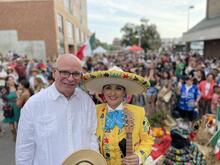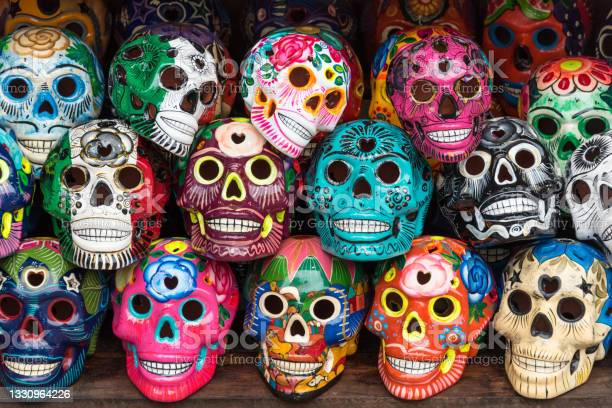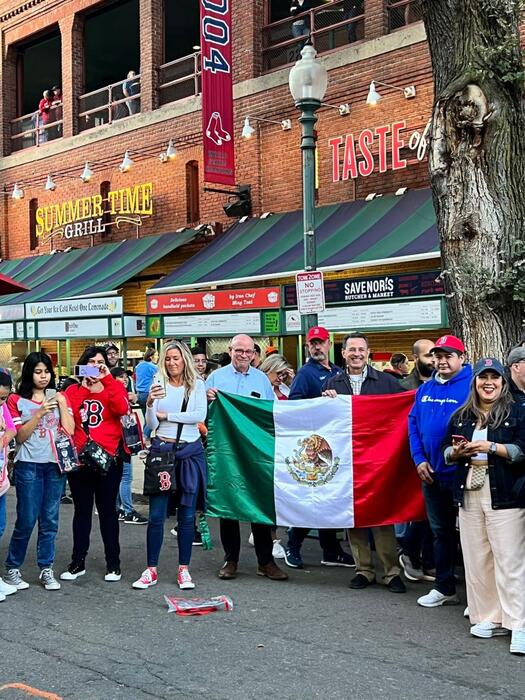Bringing Mexican Culture to the World: An Interview with Alberto Fierro, Consul General of Mexico in Boston

Consul General of Mexico in Boston, Alberto Fierro, visited the Yale MacMillan Center to attend the celebrations CLAIS organized to celebrate the 200 years of Brazilian Independence. We did not miss the opportunity to speak with him about the challenges of diplomatic work for a country like Mexico, the needs of the population he represents, and what we all from our own positions can do to better help Latin American populations.
When did you become interested in diplomacy, and why?
It was in high school. I saw myself as representing the richness of Mexican culture abroad. But then, when I finished high school, the place I wanted to study didn’t open that year, so I studied sociology instead of international relations. Finally, after a decade of being a cultural promoter, I asked for a job in the foreign ministry, the place I had fantasized about. A year later, I was there.
What has been one of the biggest challenges of representing Mexico abroad throughout your career?
I’ve been fortunate that my career started in the cultural area in the foreign affairs ministry. The richness of Mexican culture and heritage allows us always to do a very easy job. So as a cultural attaché in the United States and Canada, it was easy to invite five Mexican women singers who sang in different indigenous languages. Coming from the cultural field made my job easy because it’s one of the areas of strength of Mexico: our museums, our cultural expressions, and our rich heritage. The challenge has often been to combine that with the harsh realities of Mexico. For example, during the Acteal movement or the Zapatista insurrection, promoting culture was challenging without recognizing the problems in Mexico. When I was consul in St. Paul, Minnesota, every 26th of every month, I would receive protesters against the Ayotzinapa massacre, which I have already said should have never happened. I would go out and hear their demands. There was even a conference on human rights after it, and I had to be there, but I couldn’t be there without acknowledging the existing problems. It’s always better to accept and confront reality and discuss these problems.
Coming from the cultural field made my job easy because it’s one of the areas of strength of Mexico: our museums, our cultural expressions, and our rich heritage. The challenge has often been to combine that with the harsh realities of Mexico.
As a consul, what kind of work do you do?
One of the wonderful things about consular work is that you can do a little bit of everything. We promote cultural exchanges and academic exchanges. Mexico has the most extensive network of consulates in the U.S. We have 52, and it’s not one per state. It has to do with the number of Mexicans, so our first job is to represent and protecting Mexicans abroad. Roughly speaking, there are eleven million Mexican-born people in the U.S. There are 35 million Mexican-Americans. Especially of those eleven million Mexican-born, around five million are undocumented. So, they do the harshest jobs, and we saw it in the global pandemic, and many times, even though they pay taxes, they have very few benefits. This means that a lot of work at the consulate has to do with giving protection, such as health booths, legal aid, information and education, and so on. It is a wonderful thing and has been a big priority for Mexico for the last three years. President Lopez Obrador has insisted that our first job is helping the Mexicans here.

Any particular challenges you face?
Yes. For instance, in contrast to the last administration in the U.S. that was so anti-Mexican, this administration, with President Biden, we have been able to rebuild our strong relationship, and there are important institutions that have to do with bilateral and trilateral relations. The biggest challenge for Mexico is to be very competitive and to be the best partner of the U.S. and Canada in the U.S. MCA. And one of the essential opportunities right now is that, with the rising tension between the U.S. and China and the idea of constructing and building North-American products, Mexico has the opportunity to bring investment to produce many parts of the North-American products like cars and airplanes. So this is one big challenge.
How does your personal experience reflect in your approach to diplomacy?
I’ve been a diplomat for almost 30 years, but I’m one of the few Mexican diplomats with cultural expertise. I’m also a sociologist, so all the tools I learned in school allow me to understand how to interconnect with the different communities of Mexicans. For example, the number of Mexican indigenous languages spoken in the U.S. is impressive, and Mexico is starting to work to protect those languages.
How do you think cultural centers could support people from Latin America in the U.S.?
It depends on the institution or the university. Those with Law Schools also usually help people. Their health areas also tend to have clinics that help minorities. So in cultural terms, maybe the connection is not direct. However, maybe there could be a special effort to try to reach out through public libraries or NGOs and bring people to any given university’s events. But I understand that connecting an academic event with a broader public is difficult. And I wouldn’t think a university should feel bad about having academic events. That’s their purpose.

Do you have an ideal event that could attract a wider Mexican or Latin American public?
It depends. For example, if you brought a Mexican artist like Lila Downs, it might be easier to attract people and have them come. When I was the director of the Mexican Cultural Institute in the Mexican Embassy in Washington, we did all kinds of events. Still, we were always criticized with the claim that our events were more for the American public or the specialized Hispanic diaspora and not for the working people. But we had events that appealed to many people. One of them was a contest of pastorales — plays related to Christmas — and we could have many people participate. The Day of the Dead is also always a good opportunity for universities to connect with all the people in their communities. Since Coco, it has become very popular. It is incredible that now almost every city in the U.S. organizes something about the Day of the Dead. Other successful connections are restaurants.
Finally, what project are you working on at the moment?
One is the celebration in December of 200 years of US-Mexico relations. All the consulates are working on celebrating those 200 years of relations that have not been easy all the time. But it is important to show that we have a common and shared history that not many people know about.
By Francisco Ángeles & Alan Mendoza
